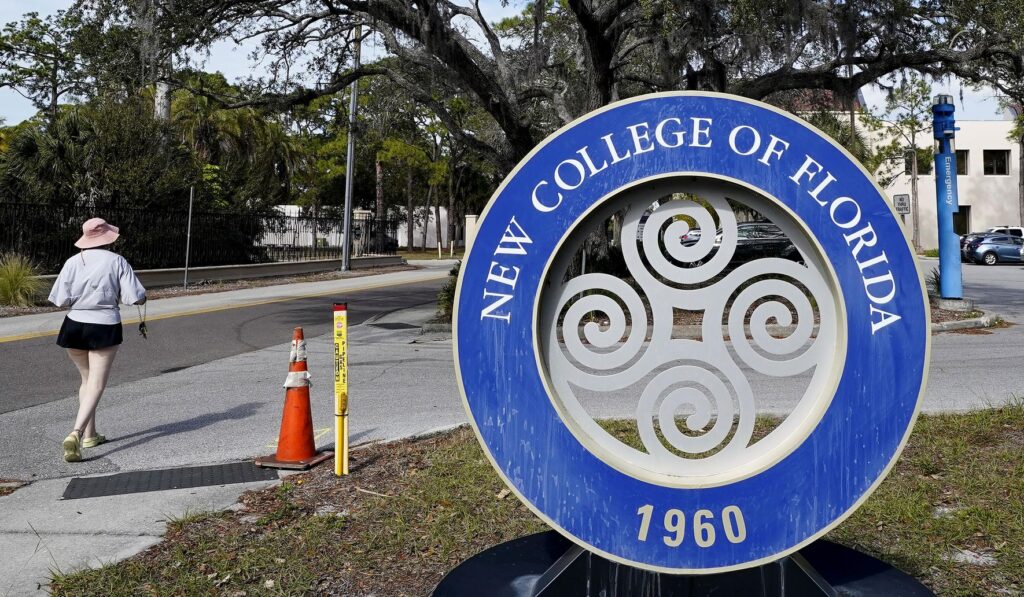The New College of Florida is stepping forward as a test case in higher education reform, embracing a Trump-era compact that other universities are rejecting. This article explains why the college’s leadership and supporters see the compact as a corrective to decades of drift, what it would change on campus, and how the move fits a broader Republican push for accountability, curricular clarity, and respect for intellectual diversity.
“Let other universities spurn the Trump administration’s higher-education compact. The New College of Florida is ready to sign.” That line captures a deliberate choice to reject the comfortable consensus on campus and push for a different set of priorities. The college is signaling it will align with a compact designed to restore academic standards and expand intellectual pluralism.
Supporters argue the compact fixes real problems: runaway administrative costs, fuzzy learning outcomes, and ideological monocultures that intimidate dissent. From a Republican standpoint, accountability is not a buzzword, it is a necessity when public dollars and student futures are at stake. The compact is pitched as a framework to ensure degrees mean something and that taxpayers get value for their investment.
Critics call the compact political interference, but defenders say the alternative is leaving colleges to drift toward uniform thinking and credential inflation. New College backers emphasize the rights of parents and students to expect clarity in what is taught and why. They see a compact as a way to return to an older bargain: honest instruction, rigorous standards, and openness to competing ideas.
Practically, supporters expect the compact to sharpen degree requirements, boost core coursework, and require clearer learning outcomes so graduates can demonstrate concrete skills. That approach favors employers and families who want graduates prepared for work, not just ideological training. For Republicans, changing incentives at the institutional level is preferable to endless handwringing about campus controversies.
The move also signals a cultural shift on campus governance, favoring trustees and civic accountability over insulated academic elites. New College proponents believe boards must be empowered to set clear priorities and to hire leaders who will defend free inquiry. That idea clashes with the tenure-protection mindset that sometimes shields departments from outside scrutiny.
Free speech and viewpoint diversity are central talking points for compact supporters, who say universities should be marketplaces for ideas, not echo chambers. They want policies that protect expression across the spectrum while making sure no single worldview dominates the curriculum or campus life. This is framed as basic fairness and a safeguard for the quality of education.
Opponents warn about politicization and the risk of short-term political winds reshaping academic programs. Backers reply that accountability measures can be designed to outlast political cycles by focusing on transparent outcomes and clear standards. The Republican argument is that institutions that serve the public must answer to the public and demonstrate results.
Financial stewardship is another key element. Compact advocates point to bloated budgets and administrative bloat as hurdles to student affordability and academic focus. They argue trimming nonessential spending and directing resources to instruction and student support can improve outcomes without cutting core academic missions. For many conservatives, smart budgeting is part of restoring trust in higher education.
The New College move will be watched closely as a model or a warning, depending on one’s politics. If the compact produces clearer outcomes, stronger job placement, and a livelier intellectual climate, other institutions might quietly take notice. If it foments turmoil, critics will seize on that as proof the approach is misguided.
The argument being made is straightforward: public universities have obligations to teach well, steward resources responsibly, and protect the free exchange of ideas. The compact is pitched as a tool to meet those obligations. New College’s readiness to sign tells a story about conservatives pushing for practical reforms rather than endless critiques of higher education.



